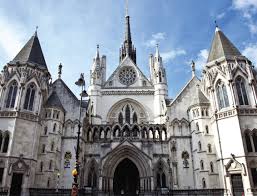By Libya Herald staff.
Cairo, 20 August 2014:
Nepal is organizing the evacuation of Nepalese nationals from Libya without the benefit of having an . . .[restrict]embassy in Libya.
The Embassy of Nepal in Cairo has been organizing the evacuation. According to the embassy’s Chargé d’Affaires, Kaushal Kishor Ray, around 400 Nepalese were working in Libya. Of those, about half have contacted the government requesting help in evacuating.
“This is a very highly organised evacuation,” Ray told the Libya Herald.
Ray stated that most of the Nepalese are in the Tripoli area. He said 12-14 were in Benghazi, and another 126 in Sirte working with the Korean company Dasoon, but had since traveled to Tripoli.
When asked about reports that those working for Dasoon were “abandoned” by the company when it began to evacuate its workers, Ray said that “from what we understand, they were not hired directly by Dasoon, but by a third party. This third party did not fulfill its obligations to them. Dasoon was not responsible.”
Furthermore, he explained that reports saying the workers were in Libya illegally were incorrect. “As far as we can determine, all Nepalese working in Libya had work permits and visas. The question of legality may have come up because they were defying Nepalese government orders.” The Nepalese government has a ban on traveling to Libya for employment because of the instability in the nation.
As of Sunday 60 Nepalese had been successfully evacuated and repatriated to Nepal. Because Nepal does not have an embassy in Libya the Indian Embassy helped those 60 secure exit visas. A transportation company in Tripoli was used to take them from Tripoli to the Tunisian border.
“Six vehicles traveled in staggered intervals, with security, to Ras Jedir,” Ray told this newspaper. From the Tunisian border the 60 were bused on to Tunis, where over the following three days they were flown to Nepal.
“We are now working on the next group of evacuations. That should happen within a week,” the Chargé d’Affaires said.
More difficult, Ray stated, is the evacuation of the small group in Benghazi. He said they had been warned that it was not safe for them to travel overland to the Salloum border crossing into Egypt. At this point they were still evaluating the various options for assisting those located in the east.
According to Ray, many Nepalese want to remain in Libya. He said the salaries they received were much higher than they would receive elsewhere.
“Generally, those who have been there the longest have adjusted the most and want to stay. It is mostly those who have only been in Libya for less than a year that are asking for our assistance,” said Ray. “All of those we have heard from are safe as of now,” he added.
[/restrict]








